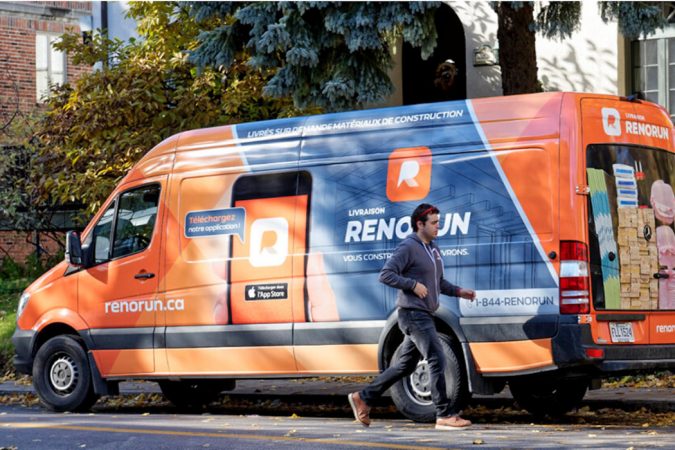
The filling follows four attempts to raise bridge financing and multiple rounds of layoffs.
Montréal-based RenoRun has filed for creditor protection as the struggling business looks to avoid bankruptcy.
RenoRun filed a notice of intention on Monday to make a proposal to restructure the company under the Bankruptcy and Insolvency Act.
The decision follows a monthslong pursuit by RenoRun of potential acquisition deals to stay afloat after not being able to secure bridge financing from its investors. It is not known of RenoRun is still pursuing these deals or what impact the creditor protection filing will have on them. BetaKit has reached out to the company for comment.
Speaking with BetaKit prior to the filing, RenoRun co-founder and CEO Eamonn O’Rourke confirmed his company was looking at multiple deal options but would not comment on any specifics.
What O’Rourke did share is the journey that led RenoRun to where it is today. It’s one that mirrors Tiger Global’s rise and fall in Canadian venture, as well as some Canadian investors that left RenoRun high and dry when the company needed them most.
The notice of intention also comes after three rounds of layoffs within the last six months, a failed attempt at raising an external round of bridge financing, and three additional attempts at internal rounds that fell through. According to O’Rourke, these fundraising attempts all failed “at the eleventh hour” due to existing investors not being able to agree to terms—terms that they themselves had set out in some cases.
Following this, two of RenoRun’s investors resigned from the board in January of this year: Inovia Capital and Sozo Ventures.
Before its struggles, RenoRun, which delivers building materials, had been a Montréal tech darling with an investor pool reflecting its potential. The company’s backers include Inovia, Investissement Québec, two BDC Capital funds, Real Ventures, ScaleUP Ventures, Schneider Electric’s venture arm, and Desjardins Capital, among others.
RenoRun’s Series B round attracted the attention of and was co-led by American firms Tiger and Sozo Ventures. Across 2021 and 2022, RenoRun raised a total of $142 million USD ($181 million CAD) for what it called its Series B round. This included $35 million USD in debt from Silicon Valley Bank and Triple Point Capital, which O’Rourke said the company never drew.
Investors were responding to the significant growth RenoRun had experienced throughout 2020 and 2021. As O’Rourke told BetaKit at the time, the company’s business “exploded in 2020, and continued to grow incredibly aggressively in 2021” amid a surge in home sales that led to an increase in remodelling projects.
RenoRun went from $3 million in revenue in 2019 to $36 million two years later, according to O’Rourke, who added that around June of 2022, RenoRun was pulling in $10 million in revenue a month. Its target for last year was around $120 million overall.
RenoRun scaled its team to meet growth targets as it looked to expand into more geographies in Canada and the United States. By the summer of 2022, RenoRun’s workforce would reach its peak of 600 employees.
However, market conditions had started to deteriorate, both in the venture capital space and in the construction industry, which saw material shortages and a loss of consumer confidence amid rising inflation. RenoRun decided to reduce its headcount and pull back on geographic market expansion, which in some cases included opening local warehouses—not a cheap venture.
In February RenoRun cut the majority of its staff, and currently has just 144 employees compared to 600 last year.
It was at this point that RenoRun didn’t have enough cash to provide laid-off employees with the minimum severance pay required under employment law, according to sources with knowledge of the company’s operations. As reported by The Logic, some of those employees are now seeking unpaid wages through a Québec labour board.
Former employees that spoke with BetaKit expressed concerns that RenoRun would file for insolvency. They noted that in a town hall announcing the latest round of cuts, the impression was that RenoRun might need to file for insolvency and there was talk of bringing in an outside accounting firm to handle the company’s financials.
“It’s an absolute shame that we ended up here,” said O’Rourke last week.
“A lot of it doesn’t make any sense at all,” he added. “It doesn’t seem that there was a reason that we didn’t get the first term sheet done in August. It seems even crazier that we didn’t get the second term sheet done when you’ve got support from investors all stepping up. I think whatever the driving factors were behind closed doors for trying to push for more aggressive term sheets, I think this thing just spiralled and we ended up where we are.”
“Rationality quickly turned to fear and fear took over,” was one investor’s take, who asked not to be named.
With files from Douglas Soltys.
.